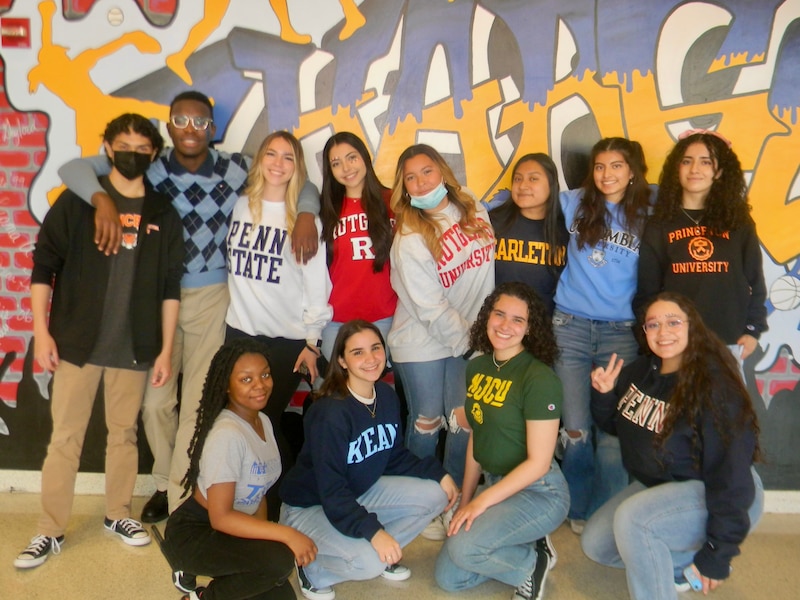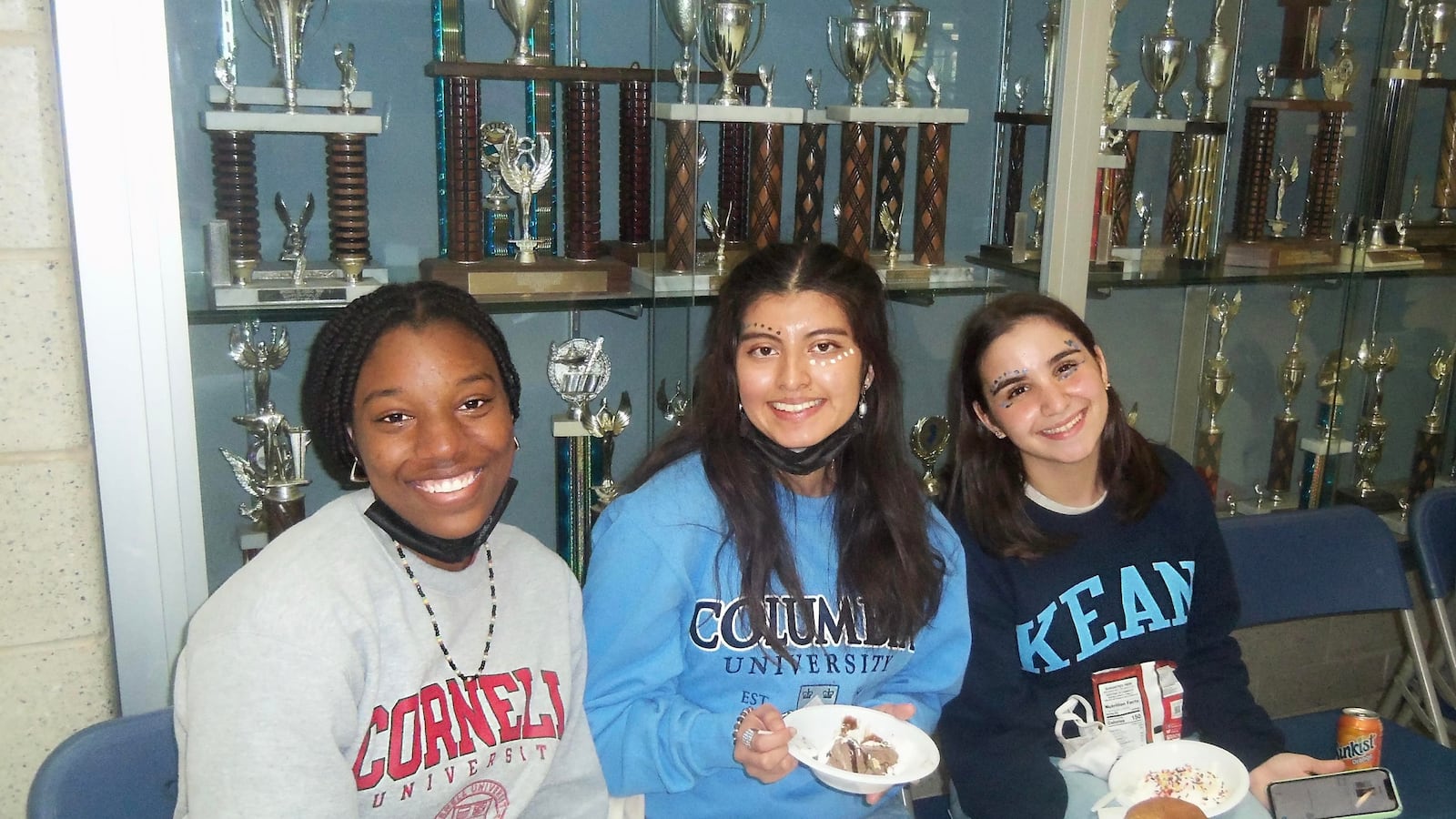During my first two years at Science Park High School in Newark, I knew very little about the International Baccalaureate, or IB, program.
The program’s coordinator explained how “high-level thinkers” and “self-motivated students” would excel in this environment. It would involve rigorous academic classes, including a philosophy course called Theory of Knowledge, or TOK; multiple lengthy research papers; 50-plus hours of community service, and a roughly 4,000-word “extended essay” on the topic of your choice.
Two years ago, I was one of 14 rising juniors to enroll in our school’s IB program. I felt highly motivated to excel academically, but in the beginning, I didn’t know how I would survive the seemingly never-ending papers and exams, being with the same small group of students for all of my main courses, and fitting in so many volunteer hours. It felt daunting to know how many deadlines were ahead.
But I did more than survive. I adapted and thrived. I learned how to conduct in-depth research, write analytical and compelling papers, and pace myself. I learned about patience, persistence, and the power of community (my committed teachers and my supportive classmates). I learned how interconnected different subjects can be.
Spoiler alert: The extended essay that was so nerve-wracking two years ago is now complete. I chose to write about Toni Morrison’s, “The Bluest Eye,” as it was one of the most memorable and powerful novels I have read.
As soon as I began preparing for the extended essay, I recognized that this was not going to be an average book report. My EE, as the extended essay is called, needed to be a meaningful exploration of “The Bluest Eye,” as seen through my chosen academic and philosophical lenses. It would require me to learn more about feminism, racism, colorism, intersectionality, and even existentialism. That meant dozens of books — including works by Kimberlé Crenshaw, a legal scholar who helped develop critical race theory, and activist Mikki Kendall, who wrote “Hood Feminism” — and many more hours in the library and in front of my computer.
Luckily, I was prepared. One of the main benefits of the IB program is the quality writing skills students develop. From creating a comprehensive outline to conducting research at my local public library to identifying reliable sources, I had learned the skills needed to complete the most complicated assignment of the IB program. Moreover, I had developed the ability to manage my time and complete assignments promptly. (Not all of my peers in Newark have the same access to advanced courses like IB or Advanced Placement: While more than 50% of 11th and 12th graders at Science Park take advanced classes, less than 10% do at some other Newark high schools.)

But IB is more than courses to pass, papers to write, and transferable life skills to learn. It is a community. When I started the program my junior year, all of our classes were remote due to the pandemic. Even in the virtual space, I bonded with my 13 fascinating and passionate IB classmates. Since we all take the same academic classes with the same teachers at the same time, we not only learned together; we learned about each other. Each of us adds something to our “IB group” with our unique interests and backgrounds.
Since coming back to school in person this year, our bond has grown even stronger.
It is crazy to think many of us didn’t know each other during the first two years of high school. IB provided this necessary foundation for our unique journey together, and we have developed genuine connections.
Since coming back to school in person this year, our bond has grown even stronger.
In our IB Physics class, for example, students often attempt problems on the board. If someone does the problem incorrectly or misses a step, we don’t criticize that person. We remind them of the missed step and uplift their efforts. Given our strong emphasis on academic excellence, we want each other to do well and offer support.
This spring, as our IB exam season approached, my peers and I would go to our school’s library after we ate lunch. There, we reviewed practice exams, tested each other on terms and concepts, and answered each other’s questions. For certain classes, we have created comprehensive study guides and shared them with each other. These group sessions have helped me hold myself more accountable for reviewing the necessary material.
We also share in each other’s joys. In late April, Science Park seniors celebrated College Signing Day, when students decide which college to attend. (All of my IB classmates are headed to four-year schools.) It was a bittersweet moment. It was thrilling to see my classmates in their college apparel and gear. Their hard work had paid off. But it also felt like the beginning of the end of an era — one that bonded us and brought us to this moment.
I am currently in the final stretch of my senior year, and I am thankful that I accepted the challenge to join the IB program. As I move toward higher education, I will keep with me fond and long-lasting memories of my peers and teachers who were fundamental to my high school journey.
Daniela Palacios (she/her) is a senior at Science Park High School. She will be attending Columbia University in the fall. Daniela is the creator of Para KIDS!, a media company that publishes bilingual children’s stories with immigrant characters. She is the author of a forthcoming Spanish bilingual children’s book, “Sara’s New Country and New Friend/ El nuevo país y la nueva amiga de Sara.” Daniela is a Chalkbeat Student Voices fellow. Read her recent Chalkbeat piece in English here or en español here.



